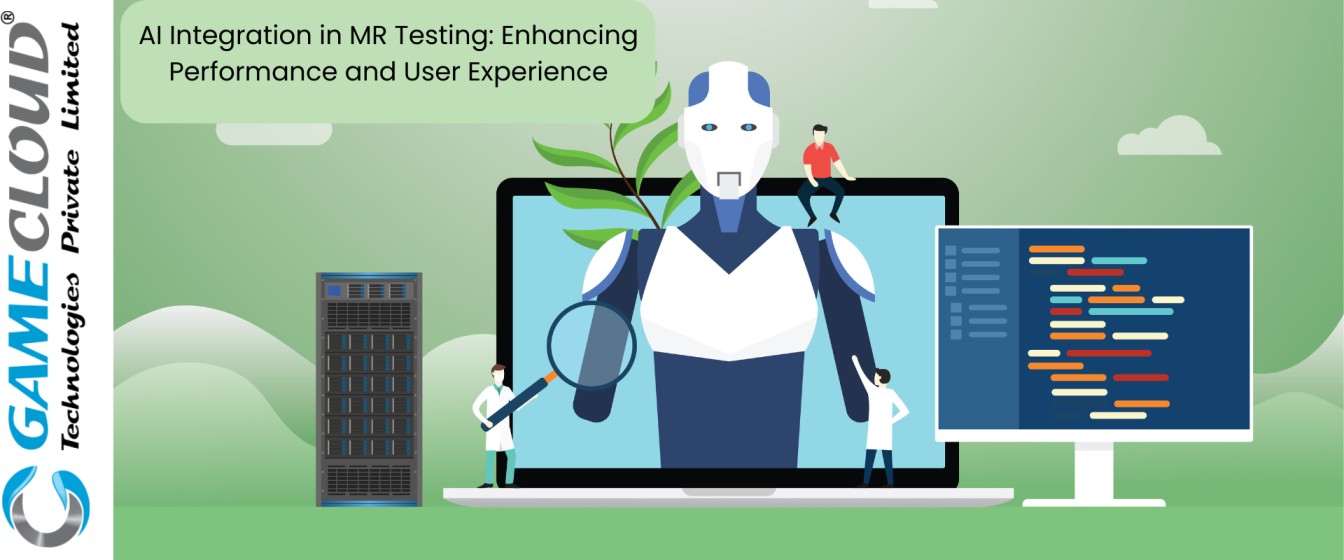
Mixed Reality (MR) is transforming industries from healthcare to entertainment. As MR technologies evolve, the need for effective testing to ensure optimal performance and user experience becomes paramount. This blog explores the integration of AI in MR testing, a breakthrough that promises enhanced accuracy and efficiency.
AI-Assisted Strategies for Enhanced MR Testing
While AI isn’t directly integrated into MR testing or automation in that area, it plays a crucial role in developing sophisticated testing strategies for MR applications. By leveraging AI, testers can create comprehensive test plans that cover a wide range of scenarios and user interactions. These AI-generated testing strategies enable more efficient identification of potential issues in MR applications. QualityReality, a leader in MR testing services, utilizes AI-driven planning tools to design robust testing protocols, ensuring their clients’ applications deliver both optimal performance and immersive user experiences. This approach combines the analytical power of AI with human expertise to thoroughly evaluate MR applications across various environmental conditions and use cases.
Enhancing Performance
AI algorithms excel in identifying patterns and predicting outcomes, making them perfect for optimizing MR application performance. QualityReality utilises these capabilities to reduce latency, increase resolution, and improve the overall stability of MR applications. Statistics from recent industry reports highlight that AI can reduce testing time by up to 40% while improving defect detection rates by over 50%.
Elevating User Experience
The use of AI in MR testing also significantly impacts user satisfaction. AI’s ability to rapidly adapt and tweak MR environments ensures that user feedback is swiftly incorporated, leading to more engaging and less intrusive MR experiences. Our Clients report enhanced user feedback scores, noting particular improvements in usability and engagement.
Navigating Challenges
Despite its benefits, integrating AI into MR testing presents challenges such as data privacy concerns and the initial cost of setup. However, advancements in secure AI algorithms and a decrease in AI technology costs are making this integration more accessible and safe.
Conclusion
AI integration in MR testing is not just a trend; it’s a substantial upgrade that enhances both the backend performance and the user-facing features of MR applications. Companies like QualityReality are at the forefront, pushing the boundaries of what’s possible in MR testing. By adopting AI, businesses can not only ensure the quality of their MR applications but also gain a significant competitive edge in the rapidly evolving digital landscape.
